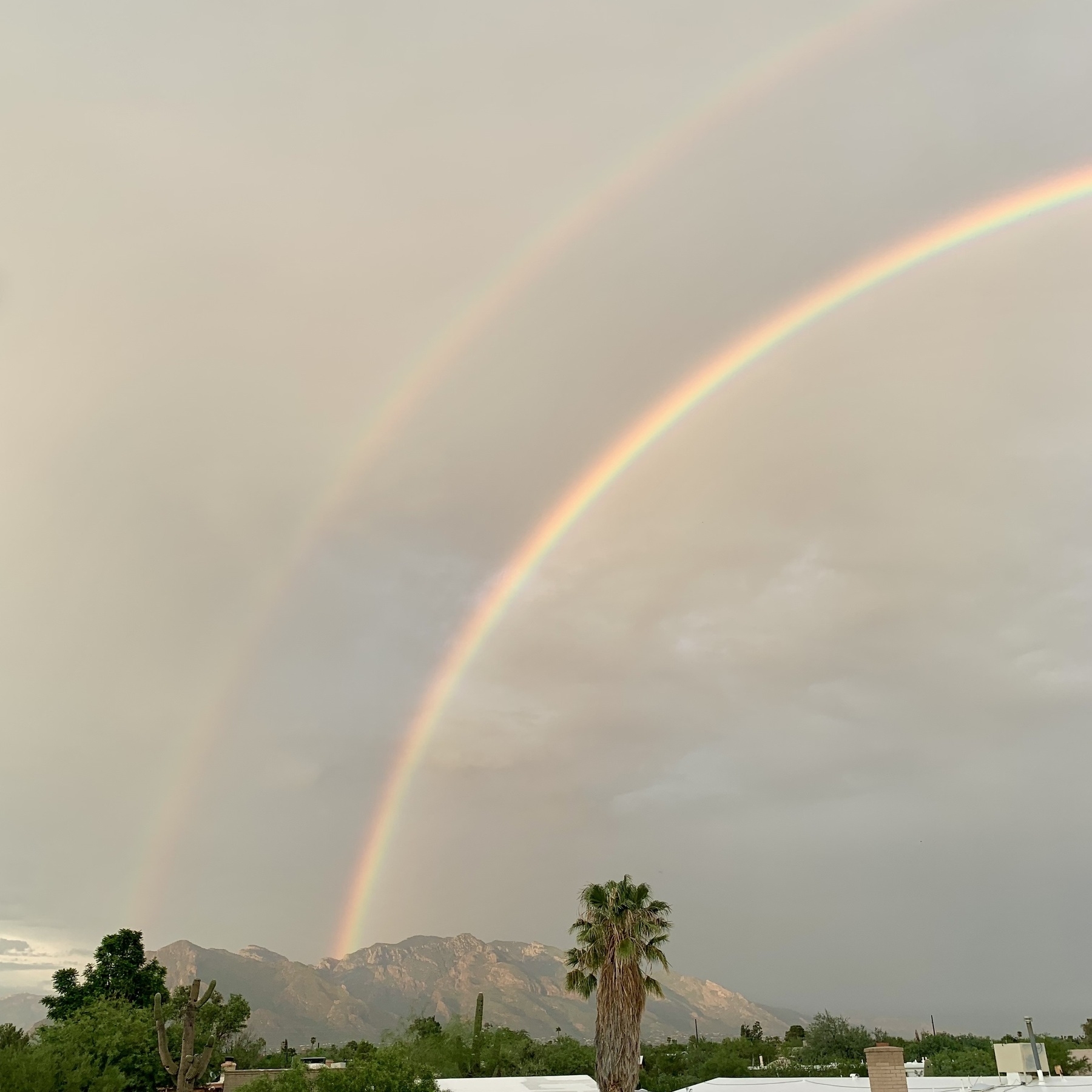From the 1960s to the 1990s, a Christian scene in Orange County, CA created an enormous amount of influence and buzz. This was particularly true for those there, but many others have also felt the water from this California wave. One important happening during this time, the birth of Calvary Chapel, is captured in the recent movie Jesus Revolution, which was released this week on Netflix. But this wasn’t the only thing happening in the OC during this time.
For those who are interested in Jesus Revolution or in this era more broadly, I recommend you read Kim Riddlebarger’s, series of blog posts on his life in Orange County during these years.
Riddlebarger is a Reformed pastor and former White Horse Inn co-host. He describes this era and place in an intimate and balanced way. He describes how it shaped him and the people around him, and what it was like to be a Reformed minister in the midst of it.
The descriptions are interesting and also entertaining—like the part about TBN giving away copies of the Heidelberg Catechism (until it didn’t) or the behind the scenes history of the very memorable Robert Schuller episode on the White Horse Inn.
His posts also helped me better understand my own history. I came to see that growing up in the 1980s and 90s, my wife and I belong to a generational cohort that experienced the last part of this big California wave. We recognized (and still have) some of the Bible covers, t-shirts, and “contemporary” Christian music that Riddlebarger references.
I also realized that growing up in Phoenix created another point of connection with this history. Despite the differences and distance, I think Phoenix can be thought of as “Orange County adjacent” in some significant ways, and not just in geography. During these decades, there were similarities in politics, immigration, tech, and more. This means that from a historical perspective, religious influence from the OC would be expected as well.
As I reflect on this, I remember how common it was for ministry teams, youth groups, and individual Christians to travel to Orange County during this time to hear speakers, attend youth conferences, and worship at Christian music festivals. I did this and know others who did too. And when we came home, we often brought some of that scene with us.
Phoenix was also a targeted place for the spread of OC buzz. For example, after the first TBN station in Santa Ana, in the mid-70s TBN purchased its second broadcast station in Phoenix, just a mile and a half down the street from where I grew up. Watching channel 21 was a regular (and usually boring) part of my growing up. The first Calvary Chapel in Phoenix started in 1978.
Riddlebarger’s personal telling throughout brought up my own memories and reflections about the past. And toward the end of the series, he had me thinking about the present and the future of my own ministry with his reflections on the OPC congregations that are also part of the story and remain so even after the influence and buzz of the OC has faded.
The series starts here:
“The OC — A New Burned Over District” – the Context for “The Jesus Revolution” — The Riddleblog.
🔗 Soft tech by Helena Jaramillo.
Monsoon-wise, Tucson photographer Ray Cleveland is having a very good season. [via] 📷
Paul and Timothy tell the Christians in Corinth that they must work with them in their ministry of the word, even though they are hundreds of miles apart. Learn how and why this was possible without the internet in my sermon last Sunday on 2 Corinthians 1:11-14.
A picture of Mo’s. We try to go whenever we visit Oregon.

And yet, just outside the restaurant was this sign pointing us the way home to Arizona.

If you don’t know the Butterfly Lovers Violin Concerto, get yourself some headphones and 30 minutes of headspace to listen to this beautiful piece. There are so many wonderful versions! Here’s a great one. And there is something magical about the violin cello duets in this one. 🎵
We recently started a nursery at Covenant for 0-3 year olds. We found loving volunteers, updated our child protection policy, provided training, etc. It took some time but it was worth it. Lara d’Entremont explains why by showing the kind of blessing it can be. She starts like this:
Dear Nursery Worker,
I came into your nursery with a lot of baggage. Not just a heavy diaper bag slung over my shoulder and a toddler clinging to my side. I came with grief from miscarriages. I came with sorrow from leaving the church we used to call home. I came with fear and uncertainty if this would be the place we could call our church.
Read: Dear Nursery Worker: Thank You For Loving Our Family Like Christ
Now is a good time to build yourself your own little internet homestead. It’s so fun. I use Micro.blog, which is offering a summer special right now, $1/mo for 4 months.
If you need some comfort and encouragement, listen to the sermon I preached last Sunday morning. If you want to hear about how foolish it is to think you can control people, even if you have more power than anyone else, listen to my sermon from the evening.
I know it’s hot right now and easy to complain. But what would happen if we replaced complaining with praying? Like this from the Book of Common Prayer:
O God, heavenly Father, who by thy Son Jesus Christ hast promised to all those who seek thy kingdom, and the righteousness thereof, all things necessary to their bodily sustenance; Send us, we beseech thee, in this our necessity, such moderate rain and showers, that we may receive the fruits of the earth to our comfort, and to thy honour; through Jesus Christ our Lord. Amen.
It’s a good prayer, right?
- It’s a good prayer because it is a pray to the Father through the Son; this the primary way God directs us to pray.
- It’s a good prayer because it seeks for something that is according to God’s will.
- It’s a good prayer because it is trusting and humble before the Lord; it recognizes God’s power over nature, and seeks God’s will and glory even above the immediate need.
- It’s a good prayer because it doesn’t think of our temporal needs as more important than our eternal needs and ends.
I know it’s hot, and for many it’s not a mere inconvenience. We can help others keep cool by sharing water, giving away Eegee’s, and donating fans to those in need. But there’s no better way to deal with the heat and lack of rain than to appeal to the Lord of rain himself.
The Golden Nugget reached 225,000 miles this summer. I’m thankful for all the adventures our family has had in this van.

Exodus 9:33 So Moses went out of the city from Pharaoh and stretched out his hands to the LORD, and the thunder and the hail ceased, and the rain no longer poured upon the earth.
Job 5:8 “As for me, I would seek God, and to God I would commit my cause.
Job 5:10 He gives rain on the earth and sends waters on the fields;
Psalm 65:9-10 You visit the earth and water it, you greatly enrich it; the river of God is full of water; you provide the people with grain, for so you have prepared it. You water its furrows abundantly, settling its ridges, softening it with showers, and blessing its growth.
Psalm 147:8 He covers the heavens with clouds, prepares rain for the earth, makes grass grow on the hills.
Jeremiah 5:23-24 But this people has a stubborn and rebellious heart; they have turned aside and gone away. They do not say in their hearts, “Let us fear the Lord our God, who gives the rain in its season, the autumn rain and the spring rain, and keeps for us the weeks appointed for the harvest.”
Jeremiah 14:4 because the ground is cracked. Because there has been no rain on the land the farmers are dismayed; they cover their heads.
Jeremiah 14:22 Do any of the worthless idols of the nations bring rain? Do the skies themselves send down showers? No, it is you, LORD our God. Therefore our hope is in you, for you are the one who does all this.
Joel 1:19-20 To you, O Lord, I cry. For fire has devoured the pastures of the wilderness, and flames have burned all the trees of the field. Even the wild animals cry to you because the watercourses are dried up, and fire has devoured the pastures of the wilderness.
Acts 14:17 Yet he has not left himself without testimony: He has shown kindness by giving you rain from heaven and crops in their seasons; he provides you with plenty of food and fills your hearts with joy.”
James 5:17-18 Elijah was a human being like us, and he prayed fervently that it might not rain, and for three years and six months it did not rain on the earth. Then he prayed again, and the heaven gave rain and the earth yielded its harvest.

Russ Roca’s paintings are an inspiring reminder that many things are best enjoyed at a slower pace. Bicyclists will especially enjoy them. 🎨 🚲
Memorizing the Westminster Shorter Catechism is one of the best things you can do. Read this article in New Horizons to get some inspiration and see how one of our families at Covenant is getting after it. Way to go!
We got to watch Sound of Freedom tonight. Go see this movie! Generous people have even provided free tickets.
Do We Actually ‘Hear’ Silence? | Scientific American
Does the brain actually “hear” silence as an input processed by its auditory system in the same way it does a car horn? Or does the organ instead infer these empty spaces by inserting place markers between sounds that are then perceived as the silent bits?
One time I was in an informal class with Yo-Yo Ma. He told us to “play the rests.”
If you like J. C. Ryle’s writing, you will want to read his recommendation of the puritan Thomas Manton. As Ryle explains his admiration for Manton, you also get a sense of what makes Ryle tick, and what he thinks makes a good man, writer, theologian, and preacher. It’s an inspiring portrait.
Listening to Tanto Tempo by Bebel Gilberto and waiting for the monsoons to samba over Tucson. 🎵

I took this picture of a balloon man in Eugene, OR. He was giving life and purpose to balloons in order to bless others. God does this when he re-forms people in Christ—“we are his workmanship”. If your life right now involves some painful twists and turns, consider: could God be re-forming you?

